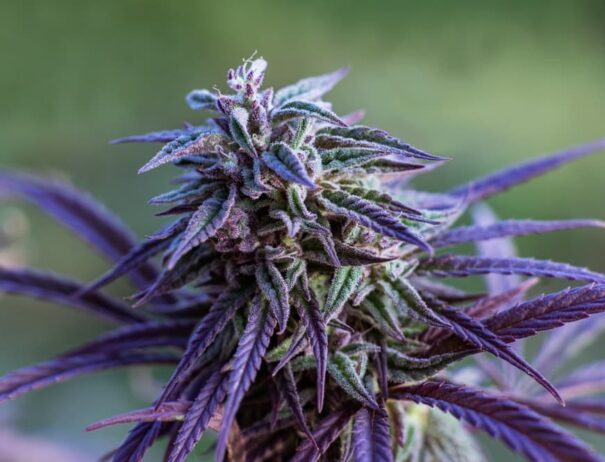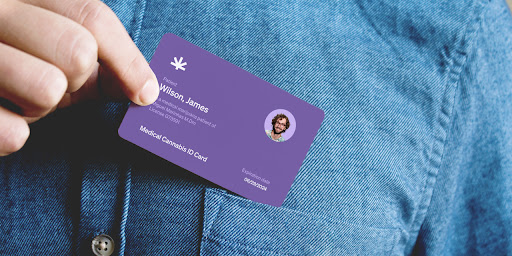Can Weed Help with Post-Traumatic Stress Disorder?
Post-traumatic stress disorder (PTSD) affects millions of people across the country. While the condition may be most closely associated with war veterans, anyone who has experienced significant physical or psychological trauma may develop PTSD. While the disorder presents seemingly daunting challenges to those who live with it and those who treat it, emerging evidence suggests that cannabis may offer effective relief for some of PTSD’s symptoms.
What Is PTSD?

PTSD symptoms fall into four general categories: intrusive memories, avoidance, negative alteration of cognition and mood, and changes in reactions.
Intrusive Memories
Intrusive memories occur when a person remembers distressing moments from the traumatic event. Sometimes, they may have flashbacks or nightmares in which they vividly relive those moments.
Avoidance
PTSD patients often spend a lot of energy trying not to think or talk about their trauma. They may also avoid situations or people that remind them of the event.
Negative Alteration of Cognition or Mood
PTSD may cause:
- Recurring negative thoughts
- Hopelessness
- Memory problems
- Relationship struggles
- Loss of interest in previously enjoyable activities
- Emotional numbness
Changes in Reactions
Some changes in how a person with PTSD reacts to events in the world may include:

- Hypervigilance
- Self-destructive behavior
- Sleep troubles
- Concentration issues
- Irritability
- Shame and guilt
How Is PTSD Traditionally Treated?
The three traditional means of treating PTSD are therapy, medication, and lifestyle changes.
Therapy
Many people find help for their PTSD through methods such as trauma-informed cognitive behavioral therapy (CBT) or other varieties of talk therapy, either individually or in a group.
Medications
Some people with PTSD find pharmaceutical interventions helpful. Some antidepressants and sedatives can effectively relieve symptoms, but many people find the side effects of these medications intolerable.
Lifestyle

- Physical exercise
- Relaxation techniques
- Proper nutrition
- Improved sleep habits
How Can Cannabis Help PTSD Patients?
While the above interventions may be helpful for some individuals with PTSD, many wish to find ways of supplementing or replacing traditional methods. Scientific studies have found increasing evidence that cannabis can effectively relieve PTSD symptoms, at least in the short term.
One reason for this improvement may be that cannabis use balances the body’s endocannabinoid system. This network of receptors is vital for many functions, including memory. By working on the endocannabinoid system, weed might reduce the occurrence of intrusive memories.
Many studies show that CBD, in particular, may offer significant relief from PTSD symptoms. One reason for this is that CBD can increase blood circulation to the brain, thereby improving the brain’s overall health. CBD’s ability to improve sleep quality may also reduce the occurrence of nightmares.
Potential Side Effects of Using Cannabis for PTSD
All medications can cause side effects, and weed is no exception. The side effects of using cannabis to treat PTSD may include:
- Nausea
- Headache
- Fatigue
- Increased anxiety
- Paranoia
- Dry mouth and eyes
- Appetite changes
- Mood changes
Many of these potential side effects will vary from person to person, and they depend on your constitution and tolerance. However, they may also depend on how you consume your weed, your dosage, and the ratio of cannabinoids within your products.
Cannabis Ingestion Methods for PTSD
 The many available methods of consuming weed for PTSD symptoms include:
The many available methods of consuming weed for PTSD symptoms include:
- Smoking
- Vaping
- Edibles
- Tinctures
Each of these methods will affect you differently. For example, smoking and vaping may provide more immediate effects but they will probably not last as long. Edibles may take around two hours to affect how you feel but the relief will be longer-lasting.
Many people’s responses to tinctures fall somewhere between inhaled methods and edibles. They may affect you relatively quickly if taken under the tongue, and the effects may last for 90 minutes to two hours.
Related Posts:

Get Your Free eBook!
Download our FREE resource, The Ultimate Edibles Guidebook, full of recipes, infusion tips and everything you need to make your first batch of edibles today!



